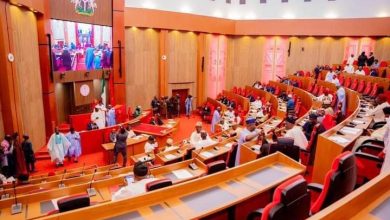Stakeholders Call for Recapitalization of PMBIs to Boost Housing Sector

Industry stakeholders have urged the Federal Government to recapitalize Primary Mortgage Banks (PMBIs) to enhance their capacity to finance real estate transactions and provide long-term funding to developers and end-users. This call comes amidst a growing demand for affordable housing in Nigeria.
The stakeholders, comprising representatives from various sectors of the real estate industry, made their appeal during the 28th Conference of Directors of Lands in the Federal and States Ministries, Departments, and Agencies (MDAs). The conference, held in Lagos, focused on the theme “Improving Land-Based Revenue of the Federating Units in Nigeria through Efficient and Effective Land Administration.”
In a communiqué issued at the end of the conference, the stakeholders emphasized the need for the government to recapitalize PMBIs to address the persistent liquidity challenges that have hindered their ability to fulfill their mandate effectively. They also advocated for the provision of easy access to land and the promotion of partnerships between the public and private sectors to accelerate housing development.
READ ALSO :Housing Cooperatives in Nigeria, Egypt, and Kenya Shine at ICA Africa Conference
Furthermore, the stakeholders called on mortgage banks to offer financing at affordable rates to make homeownership more attainable for a wider segment of the population. They also underscored the importance of automation in land titling and registration processes to enhance efficiency and transparency in land administration.
The conference also addressed the issue of land charges, recognizing the need for a review to ensure that land acquisition remains accessible to a larger number of Nigerians. Additionally, the stakeholders recommended strict enforcement of regulations against rent defaulters and the periodic collection of ground rents to generate revenue for the government.
In advocating for political will on property taxation, the stakeholders highlighted the need for political office holders at all levels to prioritize this crucial revenue stream. They also emphasized the importance of establishing Land Use and Allocation Committees (LUACs) in all states and council areas to streamline land administration processes.
The conference also called for the amendment and enactment of new laws, including the Land Use Act, to stimulate real estate activities and promote economic growth. In particular, the stakeholders emphasized the need for collaboration between the CBN, FMBN, NIESV, REDAN, and HOFPAN in conjunction with the NUC to unbundle the estate management course and introduce specialized courses such as housing finance, property market analysis, land management, property investment, facilities management, urban development, and management.
READ ALSO :Housing Cooperatives in Nigeria, Egypt, and Kenya Shine at ICA Africa Conference
The stakeholders also proposed the establishment of a National Real Estate Information Centre and a partnership with the NPC to gather comprehensive, reliable, and relevant housing data. This data, they believe, would be instrumental in informing policy decisions and guiding the development of the housing sector.
Acknowledging the importance of investor security, the stakeholders urged the government to strengthen its safety strategies to combat terrorism, banditry, and other criminal activities that could jeopardize investments in the real estate sector.
The conference also highlighted the need to diversify the economy to reduce overdependence on oil and promote sustainable growth. Additionally, the stakeholders called for well-defined and regular maintenance of existing infrastructure and the establishment of a functional Research and Development Unit within the Ministry of Housing to foster innovation and progress in the housing sector.
The stakeholders’ recommendations, if implemented, could significantly enhance the efficiency and effectiveness of land administration, stimulate investment in the real estate sector, and contribute to the overall growth and development of the Nigerian economy.
Source: The Guardian Newspaper




